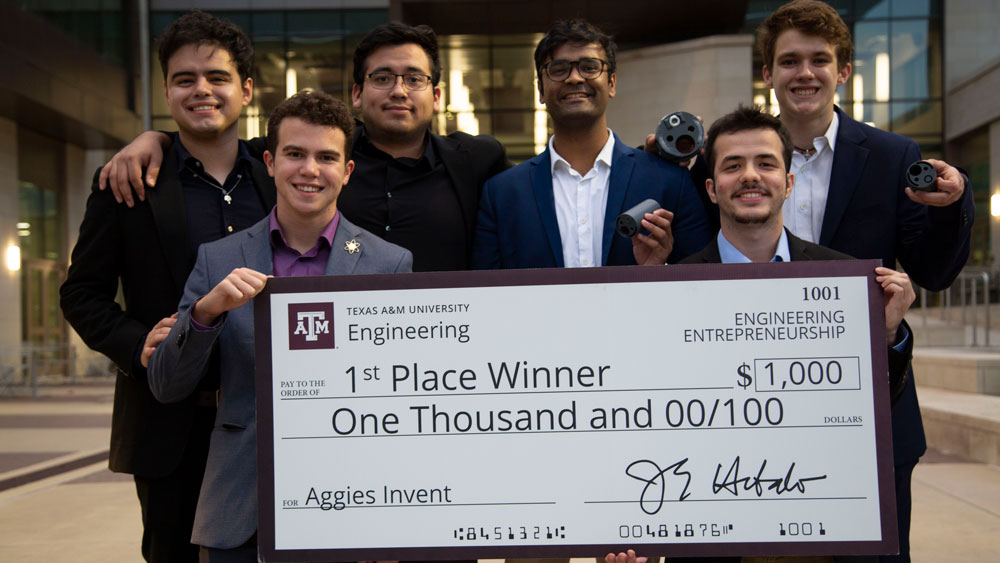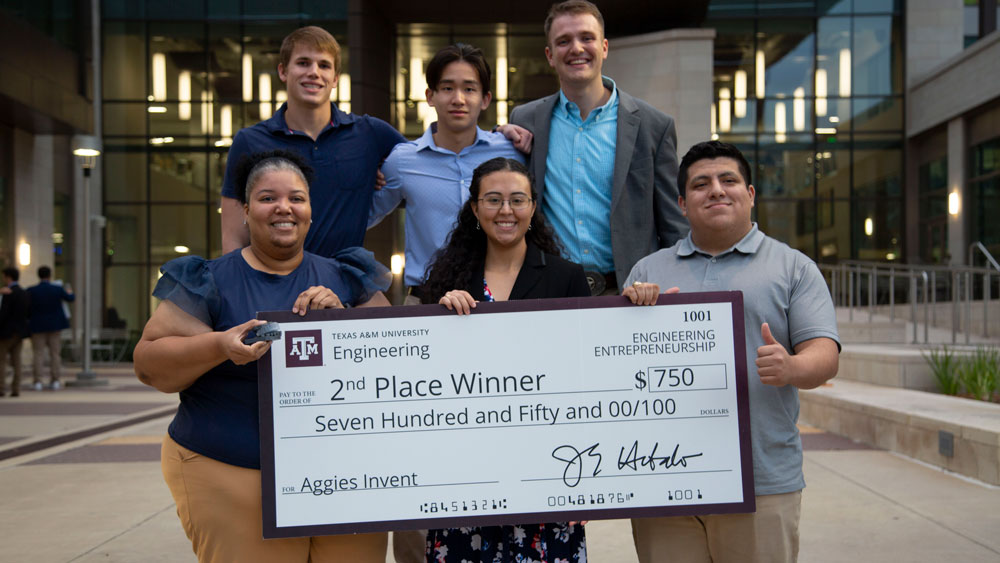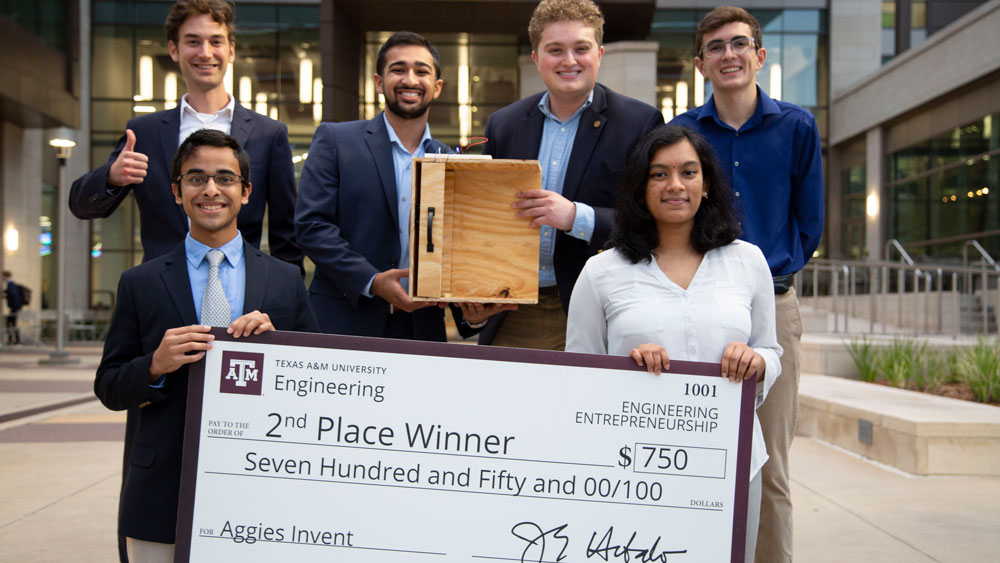
The Texas A&M University College of Engineering hosted December’s Aggies Invent with the theme of tackling different problems the health care industry faces. The issues were provided by their sponsors, Sling Health. At the event, 11 teams had 48 hours to solve one of 12 need statements identified as issues in the medical field.
Due to a tie, this Aggies Invent had one first-place winner and two second-place winners. Both second-place winners received the same amount of money awarded.
First-place team Permaclear tackled the need statement to create a device that holds visual acuity during procedures with a thin camera known as a cystoscope that is used internally. They discovered a common problem that doctors face during a cystoscopy procedure is debris on the lens of the cystoscope, making it difficult to see inside a patient's bladder.
Their solution was a device that filters out debris from the saline solution inserted into the bladder through an irrigation system, much like the practice of dentists. Their idea is to replenish the individual’s bladder during the procedure by filtering out the used saline solution that has debris and pumping in new filtered saline to make it easier to see so the procedure can be faster and simpler. Permaclear also decided to add LED light strips and fiber-optic LED cables to eliminate and distinguish between noncancerous and cancerous tissue that is found commonly during these procedures and optimally is used to help diagnose bladder cancer.
“It has been an exhilarating experience,” said Arthur Farnsworth ‘23, undergraduate student in the Department of Biomedical Engineering and member of Permaclear. “When we formed and met each of our teammates, I instantly knew there was a connection, and we were on the same page on how to approach our problem. I was really fortunate to work with such esteemed colleagues. Being able to translate and innovate medical solutions and apply them to actual practice and impact the real world is my biggest takeaway from this experience.”

Second-place team Cowboy Dental was tasked with improving rural health care access. The team narrowed this broad task down by focusing specifically on dental care. The problem they found was that it is difficult to get to a dentist in rural areas, so their solution had to include something the patient could do at home. Cowboy Dental came up with a way to measure someone’s current dental hygiene techniques to potentially find ways to improve it at home, such as brushing your teeth more often, flossing more or brushing for a longer period of time.
“Our prototype solves the inability to measure how ineffective your preventative care is at home,” said Wyatt Smith, a senior in the Department of Computer Science and Engineering. “The mouthguard we designed measures the actual plaque levels in your mouth and will tell you if you’re doing an inadequate job and offer suggestions like needing to use more toothpaste, or it can tell you that you are doing a great job and to keep doing what you're doing. It would be a part of your new dental routine and take maybe 30 more seconds than what you would usually take.”

Patho-Gone, the team that tied for second place, developed a novel method for sanitizing white coats. They identified the problem that approximately two million patients get in-hospital infections, and their solution was to create a device that is effective and time efficient to integrate with the fast pace of a doctor’s life. The device is a cabinet with multiple slots, like a locker, with UVC lights that kill all bacteria in five minutes. All a doctor would need to do is place their white coat in the slot, shut the door, and in five minutes, their coat would be sanitized on the outside.
“I have to say, this experience has been fantastic, and the first time we met on Friday, we had no idea what we were getting ourselves into,” said Marcus Glass ‘24, undergraduate student in the Department of Biomedical Engineering and member of Patho-Gone. “This weekend has been a transformation going into the process of design development, brainstorming and the team as a whole meshed so well together. The teamwork is what got us to second place. My biggest takeaway is seeing the engineering design process in action. I think oftentimes we hear about how to go about executing things, and seeing how efficient it is to go from step A to step B was beautiful.”
Students who participate in Aggies Invent are always encouraged to take their ideas and innovations to the next step with the Engineering Entrepreneurship Program's start-up incubator, Engineering Inc.